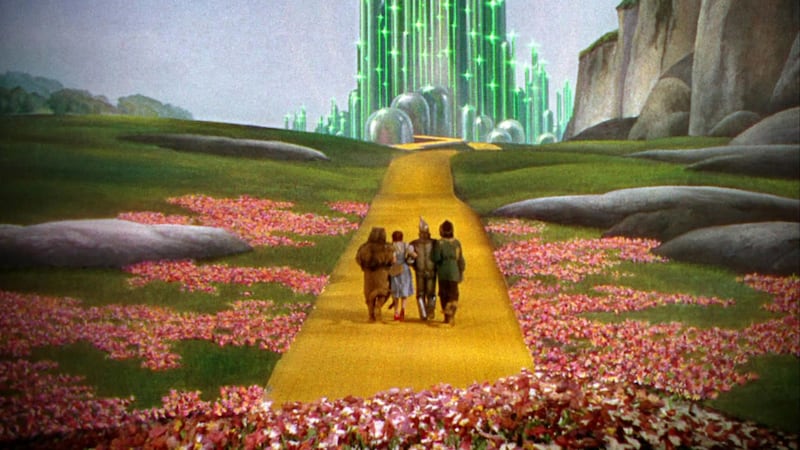THIS was the summer when sport reclaimed a little piece of its soul.
Dandering around die Straßen of Dusseldorf in June, it became clear that football had finally come home. For Baddiel and Skinner’s prophesy to remain unfulfilled 28 years - and 14 major international tournaments - later was an expected but, nonetheless, enjoyable digestif.
However, this wasn’t about the winning, or even the taking part… quick, somebody fire up the Braveheart music.
No, this was about feeling. About belonging. About taking back ownership of something lost, even if only for one measly month.
Please excuse the overly romantic spiel, the head-in-the-clouds idealism, but consecutive World Cups in Russia and Qatar – either side of a fragmented, forlorn Euros – left most of us feeling cold and icky; the people’s game, taken away from the people in the name of money and megalomania.
It was the equivalent of moving the Shire to Mordor.
The abiding image from the 2018 World Cup should be of a teenage Kylian Mbappe bursting onto the scene as France went all the way. Or Cristiano Ronaldo’s breathtaking hat-trick against Spain. After all, World Cup summers are supposed to ignite a lifetime’s worth of magic memories.
Instead, though, it is the last day that remains locked in, never to leave.
Water cascading from the bald pate of Fifa impresario Gianni Infantino, that sh*t-eating grin ever-present even as the skies opened above Moscow’s Luzhniki Stadium.
French president Emmanuel Macron and Croatian prime minister Kolinda Grabar-Kitarovic stood sodden, but proud, joined by sets of players soaked to the skin after leaving everything out on the field during the previous 90-plus minutes.
Vladimir Putin was the only person on the pitch protected from the elements as, like a Bond villain’s crony sparing his master, a stern looking henchman thrust forward a black umbrella.
Even before Russia’s subsequent invasion of Ukraine, this was a depressingly fitting snapshot of how far out of touch football had become.
The delayed Euros that followed in 2021 was a confused hodgepodge, taken to every corner of the continent, yet belonging to everybody and nobody at the same time.
Played out against the backdrop of a global pandemic, watched in beer gardens because bars weren’t yet fully operational, the only real imprint it left was of the carbon variety.
Which brings us to Qatar. Ah, Qatar. Was that really only a year-and-a-half ago? Held in winter, crowbarred into the calendar to suit the Sheikhs, human rights abuses, air conditioning, fake fans, Salt Bae and Lionel Messi sheathed in a black bisht at the crowning moment of a glorious career.

It all feels like some kind of weird fever dream now, one of those still capable of sending a shiver down the spine no matter how many years should pass.
That’s why Germany was a welcome shaft of light after a decade shrouded mostly in darkness, because here was one of the beautiful game’s showpiece events back where it belonged – all in one place, in a country where football is a culture all of its own.
Of course there were the usual trappings that come with international tournaments; inflated ticket prices, transport issues, watery beer in three euro plastic cups and fan-parks flogging over-priced merch.
But around Dusseldorf and Cologne, where myself and a few friends were based for a couple of days, the buzz was inescapable; streets alive with craic and colour, Turkish supporters tooting horns well into the early hours after watching their side’s dramatic victory over Georgia, the Scots merrily drinking in every last drop of their first taste of a major tournament since 1998.
“Zwei Konig please, hen…”
The Tartan Army were on song from the minute they arrived until the minute they departed, traversing Europe every which way to ensure this golden opportunity was not missed. They may have come home too soon, but memories were made that will never leave.
The Olympics in Paris managed to capture something similar.
Tokyo should have been a joyous celebration of Japanese culture but, because of Covid, no-one was there to celebrate it. Rio 2016 brought people from all over in search of sun, sand and sport, yet so few of the city’s inhabitants could actually afford to go to anything, resulting in half-empty stadiums on nights when they should have been thronged.
An all-encompassing Olympic Park was built on the outskirts of the city at great cost, none more than to those whose homes in the Barra da Tijuca favela were bulldozed to make way for the bright lights of the greatest show on earth.
Rather than splash out billions on shiny new venues that would likely lie dormant once the Games were over, Paris instead made the Olympics fit around the city. That brought us boxing at the iconic Philippe Chatrier court in Roland-Garros, a BMX course at La Concorde and taekwondo inside the beautiful Grand Palais, just a stone’s throw from the Arc de Triomphe, to name but a few.
It made every step of the city feel alive; at one, as much as is possible, with a once-in-a-lifetime occasion, Paris showing its very best before the eyes of the world.
The next few Olympics are in Los Angeles and Brisbane. Who knows, the one after could be in Saudi Arabia. Or Iran. Or wherever the most money is coming from.
That’s why this summer, and all that it brought, should be savoured. It could be some time before we see another like it.










